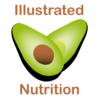17 Foods That Help Prevent and Manage Type 2 Diabetes

Updated November 2024
Diabetes is prevalent. According to the Centers for Disease Control and Prevention, 38.4 million people (11.6%) in the US have diabetes and 97.6 million adults have prediabetes. The estimated cost of diabetes in 2022 was $413 billion!
That’s terrible news, but the good news is that through mindful dietary choices, anyone can significantly mitigate the risk of developing type 2 diabetes. In some cases, it can even reversed (that is, reliance on medication can be made unnecessary). In terms of diet, preventing or managing this type of diabetes revolves around whole foods, especially plant foods (but we’ll cover some animal foods too). Here is a list of 17 foods that can help maintain healthy blood sugar levels and overall well-being.
Dark Green Leafy Vegetables
Spinach, kale, and collard greens are low in calories and packed with essential nutrients like magnesium, which aids insulin function.
Berries
Berries are loaded with fiber, antioxidants, and vitamins, and of course they are an excellent way to naturally satisfy a sweet tooth while still keeping blood sugar levels stable.
Fatty Fish
Sorry, red meat is definitely not on this list. But if you love fish, you’re in luck! Salmon, tuna, mackerel, and sardines are all rich in omega-3 fats, which can help reduce inflammation and lower the risk of heart disease and diabetic retinopathy, which is a condition involving vision loss in those with diabetes.
Nuts
Cashews, almonds, and walnuts provide healthy fats, protein, and fiber, making them ideal snacks for individuals with diabetes. They’re a great source of protein without the baggage that comes with certain meats.
Whole Grains
Yes, grains are good for diabetics. The idea that diabetics shouldn’t consume carbs is a myth. The key is consuming the right carbs. Choose whole grains like oats, brown rice, farro, and quinoa. These are high in fiber and have a lower glycemic index compared to refined carbs.
Sweet Potatoes (Yams)
These orange delights are high fiber, vitamin A, C, and potassium. They’re a versatile food that can be served sweet or savory. Try putting some cinnamon on them! (For info on cinnamon, check out our post last month on this incredible spice.)
Beans
Beans are high in fiber and are a great source of plant protein. They’re good for your heart and can help stabilize blood sugar levels.
Milk and Yogurt
Dairy products can provide essential nutrients like vitamin D and calcium, but it’s important to choose low-sugar and low-fat varieties.
Citrus Fruits
Citrus fruits like grapefruit, oranges, and tangerines not only provide a lot of vitamin C but also contain folate and potassium, which are good for the heart.
Broccoli and Broccoli Sprouts
Broccoli is rich in sulforaphane, which aids insulin sensitivity and can help lower blood sugar levels.
Pumpkin and Pumpkin Seeds
Pumpkins are packed with fiber and antioxidants, and their tasty seeds offer healthy fats and protein, both contributing to better regulation of blood sugar levels.
Okra
A common food item in the southern United States, okra is an edible seed pod, often eaten fried. Its seeds contain compounds that lower blood sugar levels and improve insulin sensitivity, making them beneficial for managing diabetes. But don’t just eat the seeds! The whole pod is delicious!
Flaxseed
Flax is high in fiber and healthy fats and can help reduce blood sugar levels and improve overall health.
Kimchi and Sauerkraut
These two foods aren’t for everyone, but they’re still worth trying. Fermented foods like kimchi and sauerkraut contain probiotics that support blood sugar regulation and improve insulin sensitivity.
Chia Seeds
Some studies suggest that chia seeds may help improve insulin sensitivity and regulate blood sugar levels. They are also a packed with protein and healthy fat.
Kale
Kale contains quercetin and kaempferol, which also help lower blood sugar levels.
Avocados
That’s right. Bring on the avocado toast! Or the guacamole. Avocados, sometimes called alligator pears, are rich in healthy fats, fiber, and various nutrients. These delicious fruits can aid in blood sugar management and reduce the risk of metabolic syndrome.
Incorporating these foods and many other healthy foods into your diet can go a long way in managing diabetes. Exercise and general physical activity are also vital. Remember that a healthy life is based on many small changes or behaviors that add up to profound improvements. Never underestimate the power of food!
